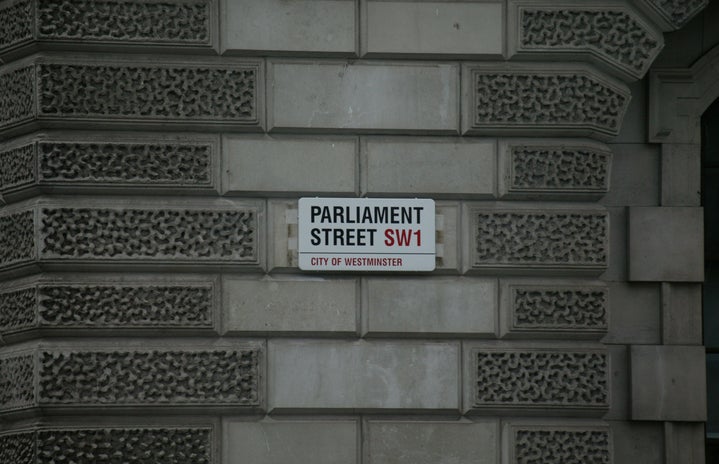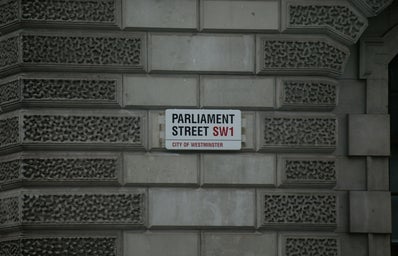“It’s like trying not to be racist but you see Diane Abbott on the TV and…you just want to hate all black women because she’s there,” says Frank Hester, the biggest donor to the Conservative Party, in 2019. “And I don’t hate all black women at all, but I think she should be shot.”
As racism goes, few statements could be less ambiguous. Yet this did not seem to be the view of the Conservative Party, for whom it took over 24 hours after the Guardian publicised Hester’s comments on Monday 11th before they were willing to acknowledge that they were indeed ‘racist and wrong’. Rather, the party’s initial position, expressed by a spokesperson that Monday, was that Hester’s apology had made clear the comments were ‘rude’, but that ‘his criticism had nothing to do with her gender nor the colour of her skin’.
The view that his comments were unacceptable, but not racist, was then repeated by Work and Pensions Secretary Mel Stride on Tuesday 12th. The party’s about-turn came only later that day, when Business Secretary Kemi Badenoch, the most prominent black MP in the Conservative Party, tweeted that she welcomed Hester’s apology, but that his comments had been racist.
Downing Street explained their delay in reaching a similar conclusion as a need to ‘verify’ Hester’s comments before-hand. It’s an odd excuse, though, since whether verified or not, the racist nature of Hester’s comments as reported could not have changed from Monday to Tuesday. They were able to acknowledge that the comments were ‘rude’ before verifying them, so there appears no reason they could not have agreed that they were racist, too.
‘The comments were wrong, they were racist. He [Hester] has rightly apologised for them, and that remorse should be accepted.’
Rishi Sunak, PMQs
Hester linked his hatred of Diane Abbott, who became our country’s first black female MP in 1987, to her blackness. He then applied this hatred to all black women, by extension. It seems unlikely that Hester would express a hatred for all white people as a result of his distaste for a specific white politician—but that, of course, is speculation.
Equipped with their new party line, Conservatives now agree that the comments were racist. Yet there remains a £10 million hitch—the issue of the money Hester donated to the party, and what ought to be done with it. Should it be returned, or donated to an anti-racist charity? These were suggestions made by some Conservatives, including West-Midlands Mayor Andy Street, and former party chair Chris Patten. But the Prime Minister and his party would not want us to get ahead of ourselves.
According to Sunak, though the comments were ‘wrong’, Hester’s ‘remorse should be accepted’—as, apparently, should his money. The party’s intention of keeping the money has been echoed by Tory Minister Kevin Hollinrake, while Badenoch called the continuing controversy around Hester ‘trivia’ that doesn’t interest the public, saying they ought to keep his donations and ‘draw a line under it’. It’s true that, in their willingness to accept financial support from, and associate with, Frank Hester, the Conservative Party do seem to have drawn a line—one that establishes the very real limits of their commitment to ‘confronting’ racism whenever they see it, and which happens to be made out of rather crisp banknotes.
The Conservatives’ lip-service response to the Hester controversy is only the latest entry in a long and troubling history of racism within their party, though taking money from a man who called for an MP to be shot looks particularly poor when set against a recent press conference where Sunak denounced ‘extremism’ which threatened the safety of MPs, and worse still against the reality that two MPs have been murdered in office in the last decade. Transport Secretary Mark Harper’s boast on Sunday 17th that his party couldn’t have a ‘race problem’, considering he’s part of ‘the most ethnically diverse cabinet there has ever been’, falls flat for anyone whose memory stretches back more than a few weeks.
In February, former Tory MP Lee Anderson was suspended for his racist, Islamophobic claims that London’s mayor, Sadiq Khan, had ‘given our capital city away’ to his ‘Islamist’ ‘mates’. Even then, Deputy PM Oliver Dowden could not bring himself to call the comments racist; Anderson has since defected to Reform UK.
Further back, though only just, the last Conservative Prime Minister elected by the general public, Boris Johnson, had in the past called Muslim women wearing burkas ‘letterboxes’, and black people ‘piccaninnies’ with ‘watermelon smiles’. His immediate predecessor, Theresa May, was responsible for a scheme dedicated to making Britain a ‘hostile environment’ for people immigrating here by non-legal means, and oversaw a scandal in which Windrush-generation Caribbean people were wrongly detained, denied services, and in some cases deported—some of whom still have not received adequate compensation.
‘Surprised not to be called to speak in a Prime Ministers Questions mostly about racism and me. Stood over 40 times. Speaker claims he ran out of time. Truth is he can make PMQs go on as long as he likes.’
Diane Abbott, X
That the Conservatives are now led by the country’s first non-white Prime Minister does little to improve the lives of non-white British people when Sunak proves as reluctant to challenge racism within his party as his white predecessors. Speaking to LBC, Kemi Badenoch suggested we stop ‘chasing people around and looking everywhere for the racism’, a convenient position to take when the racism currently in question is within her own party.
This is not to say that inadequate responses to racism are an issue unique to the Conservatives—racism is pervasive by nature, and as Diane Abbott herself suggests, all parties must be active in their efforts to ‘stand against it’. During Prime Minister’s Questions on the Wednesday after Hester’s comments were published, Abbott stood to speak over forty times. She was not called. In a social media post afterward, she said this ‘surprised’ her, considering the PMQs were ‘mostly about racism and me’. ‘Speaker claims he ran out of time. Truth is he can make PMQs go on as long as he likes.’
It’s difficult to imagine a more obvious opportunity to ‘confront racism’, than for the Conservative Party to reject the money of a man whose disagreement with a politician’s views made him ‘want to hate all black women’. As long as they refuse to do so, the scandal says something dire about their response to racism going forward, regardless of who’s in charge; we might be forgiven, looking only at the recent history of the Conservatives, for feeling pessimistic.


